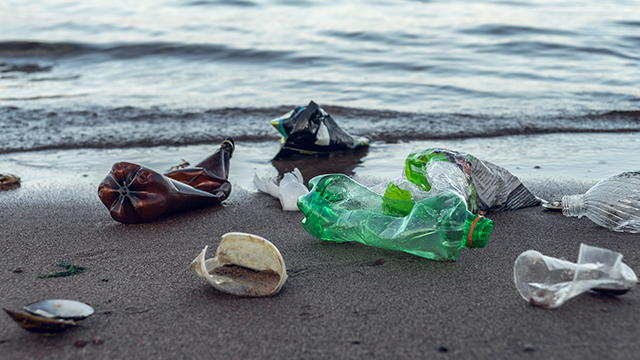Plastic pollution, which threatens our seas worldwide, has become one of the focal points of environmental protection and sustainability efforts. Today, many different methods are being studied to clean up plastic waste in the seas and reduce this pollution. Recently, research on how bacteria can play an important role in naturally degrading and cleaning plastic waste has attracted attention. For this reason, cleaning with bacteria is gaining momentum.
Plastic pollution causes serious damage to the ecosystems and biodiversity of our seas. Feeding sea creatures with plastic waste can cause serious health problems for seabirds and marine mammals and increase the number of endangered species. Furthermore, plastic pollution in our seas degrades water quality and can negatively affect the fishing industry. Therefore, effectively tackling plastic pollution is important for the future of our seas and our planet.
Bacteria are microorganisms that naturally occur in our environment and are used in many different tasks. Recent research has shown that some bacterial species have the ability to break down plastic waste. These bacteria can biodegrade plastic waste into smaller molecules and thus contribute to reducing plastic pollution in our seas. Some researchers aim to develop a new and effective method to clean our seas by using these plastic-degrading bacteria in natural marine environments.
Cleaning studies with bacteria are starting in the laboratory environment and are being made applicable in our seas through field studies. Laboratory studies are carried out to test the effectiveness of plastic degradation bacteria and to determine the most suitable conditions. Then, field studies in the marine environment observe how plastic degradation bacteria work in natural marine environments and how they contribute to the cleanup of plastic waste. The results of these studies are an important resource for developing more effective strategies to tackle plastic pollution in our seas.
For cleanup efforts with bacteria to be successful, several factors need to be taken into account. First of all, it is important to provide suitable conditions for plastic degradation bacteria to work effectively in natural marine environments. It is also important that the bacteria do not harm the natural marine environment and do not have negative impacts on marine ecosystems. Therefore, cleaning with bacteria requires careful planning and implementation.
Bacteria cleanup efforts have a promising future in the fight against plastic pollution in our seas. However, for these efforts to be successful, more research and development work needs to be done. In addition to cleaning with bacteria in the fight against plastic pollution, we can also take an important step to protect the future of our seas by reviewing our consumption habits and reducing the use of plastic.



